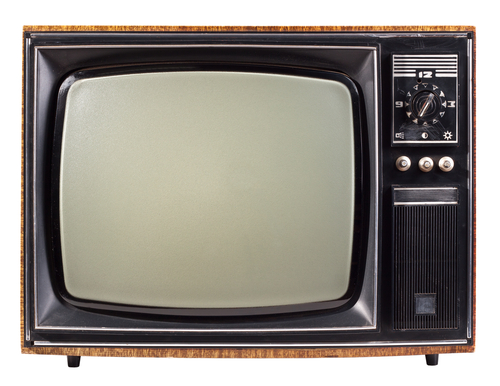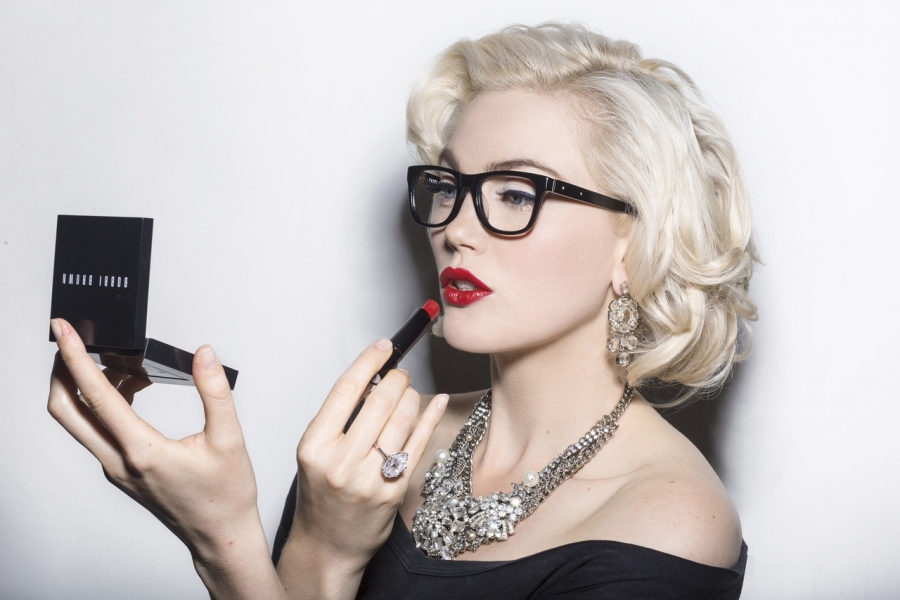|
One Last Cringe for The Office Finale
Posted on: 05/10/13
.jpg) LOS ANGELES — Sometime in Season 3 of “The Office,” its creator, Greg Daniels, conceived the premise for what would be the show’s finale.
Not the actual documentary about the Dunder-Mifflin paper company of Scranton, Pa., that a fictional camera crew shot for what turned out to be nine years, he decided — but a reunion show, in the fashion of the post-competition cast rehashes familiar from reality shows like “Survivor.” “At one point I actually approached Jeff Probst,” the host of “Survivor,” Mr. Daniels whispered as the big reunion scene unfolded here in the auditorium of an AT&T office building. Standing in for the Scranton cultural center, it was one of many locations for the ambitious one-hour finale, to be shown on May 16 on NBC. Onstage at the reunion were most of the prominent characters — minus the biggest one, Steve Carell’s Michael Scott — arrayed in a long arc of folding chairs. They were answering questions about how the documentary, supposedly recently presented on Scranton’s PBS affiliate, had changed their (fictional) lives. Why PBS? “I tried to think what outlet would shoot something like this and take nine years to do it,” Mr. Daniels said. That idea is almost as improbable as the notion that a comedy adapted from a British sitcom and initially poised for oblivion (after NBC’s screening of the pilot, it was headed for exile on Bravo, one executive related) would become a bellwether of many of the changes that have overtaken television today. As the anchor of NBC’s once-heralded Thursday-night lineup, it played a role in pioneering alternative entertainment forms like TV offerings on iTunes and Webisodes on the Internet. It helped executives recognize the value of delayed viewing. Equally important, it opened broadcast television to a new concept in humor: the sitcom that makes you uncomfortable. “The Office,” never qualified as a blockbuster hit (though it attracted one of the most affluent audiences in television). Yet it clearly paved the way for a style of filmed comedy — smart, multilayered and subtle, sometimes so much so that a portion of viewers never understood its humor. The genre has since been embodied by other highly regarded comedies like “30 Rock,” “Parks and Recreation,” “Community” and “The Mindy Project” (starring an “Office” graduate, Mindy Kaling). The show also had striking worldwide appeal. The original British version, starring Ricky Gervais, has been copied in places as disparate as Chile and France, proving that office life under a bumptious boss is apparently universal. “ ‘The Office’ was like a high-wire act,” said Ken Kwapis, the show’s first and last director. He cited, among other things, the absence of a laugh track, the exclusion of any kind of background music and a completely untraditional filming style. “Some of the things most compelling about the show aren’t even funny,” Mr. Kwapis said. “But they make you cringe. Now I go to pitch meetings where executives say, ‘I want that cringe-worthy comedy.’ ” That any of this happened is mind-boggling for almost everyone who was involved at the show’s inception, beginning with Ben Silverman, the executive producer (and later, head of NBC’s entertainment division), who chased Mr. Gervais all over London to secure the American rights. “What was required to get this show on was almost herculean,” Mr. Silverman said. The NBC chief executive at the time, Jeff Zucker, had proclaimed that no single-camera comedy could ever be a hit show. (Single-camera shows are shot on sets and locations and feel like movies; three-camera comedies like “The Big Bang Theory” are shot on stages in front of audiences and feel like theater.) Mr. Zucker was not an initial fan of NBC’s version of “The Office,” and he wasn’t alone. “A lot of people didn’t get it,” Mr. Daniels said. John Krasinski, who memorably inhabited the show’s male romantic lead, Jim, recalled that during the shooting of the first six episodes, a network executive would show up every Friday and say, “This episode is so good — unfortunately, it’s the last one we’re going to do.” Expectations among critics were also low because the British version, created by Mr. Gervais and Stephen Merchant, had been deemed an instant classic, and NBC had misfired two seasons earlier in a remake of the British comedy “Coupling.” Mr. Daniels recalled watching the British “Office,” with its ironic tone, and thinking, “Oh my God, how did they pull this off?”A breakthrough came when Mr. Daniels realized that between Americans’ newborn fascination with reality shows and their growing habit of recording even mundane events in their own daily lives, “being in front of a camera and talking to a camera became a most relatable experience.” The idea of allowing characters to speak directly to the camera, another device straight out of “Survivor,” also opened up possibilities, Mr. Daniels said, because “you can tell stories in a first-person point of view.” That technique is now commonplace on shows like “Modern Family” and countless commercials. With his own experience in the reality genre, Mr. Silverman reached out to camera operators with reality-television credits to film the pilot. To direct, Mr. Daniels hired Mr. Kwapis, who had cut his teeth on observational single-camera comedies like “Freaks and Geeks,” and especially “The Larry Sanders Show.” And Mr. Kwapis brought in Peter Smokler, who had worked on the beloved mockumentary “This Is Spinal Tap,” as director of photography. Casting also required new thinking. “The actors who were workers at Dunder-Mifflin had to look, frankly, like people who don’t belong on prime-time television,” Mr. Kwapis said.
Phyllis Smith was the assistant casting director for the pilot when she intrigued the producers with her line readings opposite actors at auditions. Mr. Daniels asked her if she might want to switch jobs and act in the pilot. She did, creating the slyly funny sales rep Phyllis Lapin-Vance, who lasted all nine seasons. Several other regulars jumped from the writing staff, including B. J. Novak (Ryan), Ms. Kaling (Kelly) and Paul Lieberstein (Toby). Early on, Mr. Silverman alighted on the idea of casting Mr. Carell as the boss, Michael Scott, the American version of Mr. Gervais’s David Brent. With a cult following from his days as a correspondent on “The Daily Show,” Mr. Carell was also coming off a breakout role in the 2003 film “Bruce Almighty.” Mr. Daniels loved Mr. Silverman’s suggestion, but before committing to a lead actor, he thought he should hire a casting director. In the meantime, Mr. Carell took a lesser role in an NBC comedy called “Come to Papa.” Their plan up in smoke, the producers selected Bob Odenkirk as Michael. When they presented the pilot cast to network executives, Mr. Odenkirk was still in the role. But an NBC insider told Mr. Daniels privately that it was likely that Mr. Carell would become available again once the public saw “Come to Papa.” (It was canceled after four episodes.) When it came time to start production on the pilot, the shooting rules were turned upside down. “There are things I’m going to ask you to do in this pilot that on any other job you’d be fired for doing,” Mr. Kwapis said he told the crew. These included being late to capture an actor’s line on camera or even initially filming out of focus. Those flaws would be acceptable — even desirable. “The idea was, how do we create the illusion that we’re not prepared for the action that’s about to unfold?” he said. The tiny share of viewers in the United States who had seen the British version recognized that the American pilot was almost a line-by-line remake. But a scene in which Michael browbeats the thoroughly likable Pam (Jenna Fischer) left an uncomfortable aftertaste. The harshness of the characterization worked for Mr. Gervais, who wears his edge proudly. It did not seem as appropriate for the sweeter Mr. Carell. “David Brent was a darker and more pathetic character,” Mr. Krasinski said. “We needed more of that lovable doofus.” Mr. Daniels set about dropping in moments that could “rehabilitate the character,” like having co-workers come to Michael’s defense after he was heckled at the Dundies, the company’s annual awards ceremony, and allowing Michael to actually offer some good advice to Jim about his pursuit of Pam. “It took a little while for American audiences to get used to the conventions of the mockumentary, the interviews and the sometimes jarring rhythms,” said Steve Levitan, a creator of “Modern Family” on ABC. “ I’ve always felt ‘The Office’ helped pave the way for ‘Modern Family’ because by the time we debuted, people weren’t thrown by the form at all. They just accepted us without the need for explanation.” For Ms. Kaling, the show was akin to “an eight-year intensive grad school” in television writing and comedy acting, not to mention other lessons courtesy of Mr. Daniels and Mr. Carell. “Greg also showed me how to lead a show,” she said, “and Steve showed me how to lead a cast.” When the first six episodes aired in spring 2005, the ratings were tepid. NBC announced it would bring the show back, but only after insisting that Mr. Silverman and Mr. Daniels cut the budget. Between the first and second seasons, however, the show received several breaks. Foremost was “The 40-Year-Old Virgin,” a hit that established Mr. Carell as a movie headliner. “It made Steve a much bigger star,” Mr. Daniels said, “but it also helped us to understand how to write him.” What truly turned their fortunes, however, was that in the first week that NBC shows were available for purchase on iTunes, episodes of “The Office” occupied four of the top five spots. Suddenly NBC was impressed, especially by the makeup of the audience: young, college-educated and affluent. Most shows were made available to such outlets as networks sought new revenue, but “The Office” fit the iTunes audience precisely. “We thought people from the workplace would be our audience,” said Rainn Wilson, who portrays the fan favorite Dwight Schrute. “Then it turns out it’s kids in college who embrace us first.” Mr. Krasinski said: “A lot of shows say they owe it all to their fans, but we legitimately owe it to our fans who went out of their way to purchase the show when they could watch it for free. I think that changed the game for a lot of television.”
Mr. Silverman sees it somewhat differently. “I think iTunes was the best thing and the worst thing that happened to us,” he said, “because it made it so possible for our audience to watch there instead of on the network.” The show’s audience was so heavily populated by tech-savvy early adapters that as the use of DVRs proliferated and more viewers chose to watch episodes later, the ratings of the Thursday broadcasts fell. In pure ratings terms, “The Office” peaked in Season 5, when it averaged 9.3 million viewers and scored an impressive 4.9 among the viewers who attract the most advertising dollars, adults from 18 to 49. By the final season, the ratings — factoring in delayed viewing over seven days — had dropped to an average of just under 5 million viewers, and a 2.5 in that 18-to-49 group (still near the top for all NBC entertainment). The decline was undoubtedly accelerated by Mr. Carell’s departure after Season 7. NBC announced long ago that he would not be back for the finale, but a suspicion lingers that a potential surprise scene may have been filmed with Michael — there is an event in the finale that would probably call for his presence. Emotions among the unusually tight-knit cast spilled over in the final week of shooting. Mr. Daniels confessed to choking up while writing a few of the characters’ final words. Ed Helms, who like Mr. Carell, Ms. Fischer and Mr. Krasinski saw his film stock soar while in “The Office,” gives the comedy full credit. “The show’s importance to me personally and professionally can’t be overstated,” he said. “Some people say my big break was ‘The Hangover.’ But I would not have gotten ‘The Hangover’ without this show.” Mr. Wilson, who made much the same point about the show’s impact on his career, witnessed something even more extraordinary: the cult of Dwight Schrute. “Here I am playing this nerdy character and he’s become an icon,” Mr. Wilson said. “I turn on college sports events and the fans are waving giant Dwight heads in the stands. People have gotten tattoos of my face. I’m just so happy to have done this.” Beyond the laughs it delivered, Mr. Kwapis views the legacy of “The Office” in how it made the audience feel. “You didn’t hear words like cringe-worthy or cringe-inducing in a complimentary way before,” he said. “Does that make the show a classic? I don’t know. But I do like the fact that the show made people appreciate the entertainment value of cringing.” By BILL CARTER Published: May 1, 2013 NYTImes.com COMMENTS
Be the first to post a comment! Post A Comment:

|
.gif)



.jpg)

